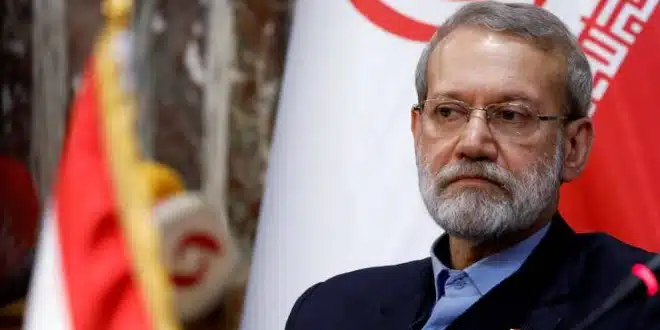Iran’s newly appointed national security chief, Ali Larijani, is embarking on his first overseas mission since taking office last week, with stops in Iraq and Lebanon over the next three days. The visit comes at a sensitive moment, as Beirut moves forward with a controversial plan to disarm Hezbollah, Tehran’s most powerful ally in Lebanon.
Bilateral Talks in Iraq, Diplomatic Push in Lebanon
According to Iranian state television, Larijani will begin his trip in Baghdad, where he is expected to sign a bilateral security agreement with Iraqi officials. He will then travel to Lebanon for meetings with senior political leaders and other influential figures.
Speaking before his departure, Larijani stressed the depth of Iran’s ties with Lebanon and signaled that discussions would cover a range of regional security issues. “Lebanese national unity is important and must be preserved under all circumstances,” he said, adding that Iran remains committed to supporting Lebanon’s independence.
Tehran’s Opposition to Disarming Hezbollah
Larijani’s trip follows public remarks from Tehran opposing Beirut’s plan to strip Hezbollah of its weapons — a proposal the Lebanese government has defended as a step toward internal stability, but one Iran has condemned as “flagrant interference” by outside powers.
Iranian Foreign Ministry spokesperson Esmaeil Baqaei said the visit aims to “contribute to the maintenance of peace in the Middle East,” while reaffirming Iran’s view that Lebanon has the right to defend itself against Israel. He argued that such defense is “impossible without military capabilities and weapons.”
Hezbollah, long considered more heavily armed than the Lebanese army, built its reputation in part on resisting Israel’s occupation of southern Lebanon from 1982 until 2000. However, after last year’s war with Israel — which left the group weakened — calls for its disarmament have grown louder from Washington, Lebanese political opponents, and other international actors, amid fears of renewed escalation.
Iran’s Strategic Position and Regional Tensions
Senior Iranian officials, including Ali Akbar Velayati, a key adviser to Supreme Leader Ayatollah Ali Khamenei, have criticized the disarmament plan as yielding to U.S. and Israeli demands. Larijani’s visit is expected to reinforce Iran’s backing of Hezbollah at a time when both the group and Lebanon are under increased political and military pressure.
Larijani, 68, now heads the Supreme National Security Council, Iran’s top decision-making body on defense and security matters. His appointment comes in the aftermath of a 12-day conflict with Israel that began in mid-June, following what Tehran described as an unprecedented Israeli strike targeting Iranian military, nuclear, and residential facilities.


